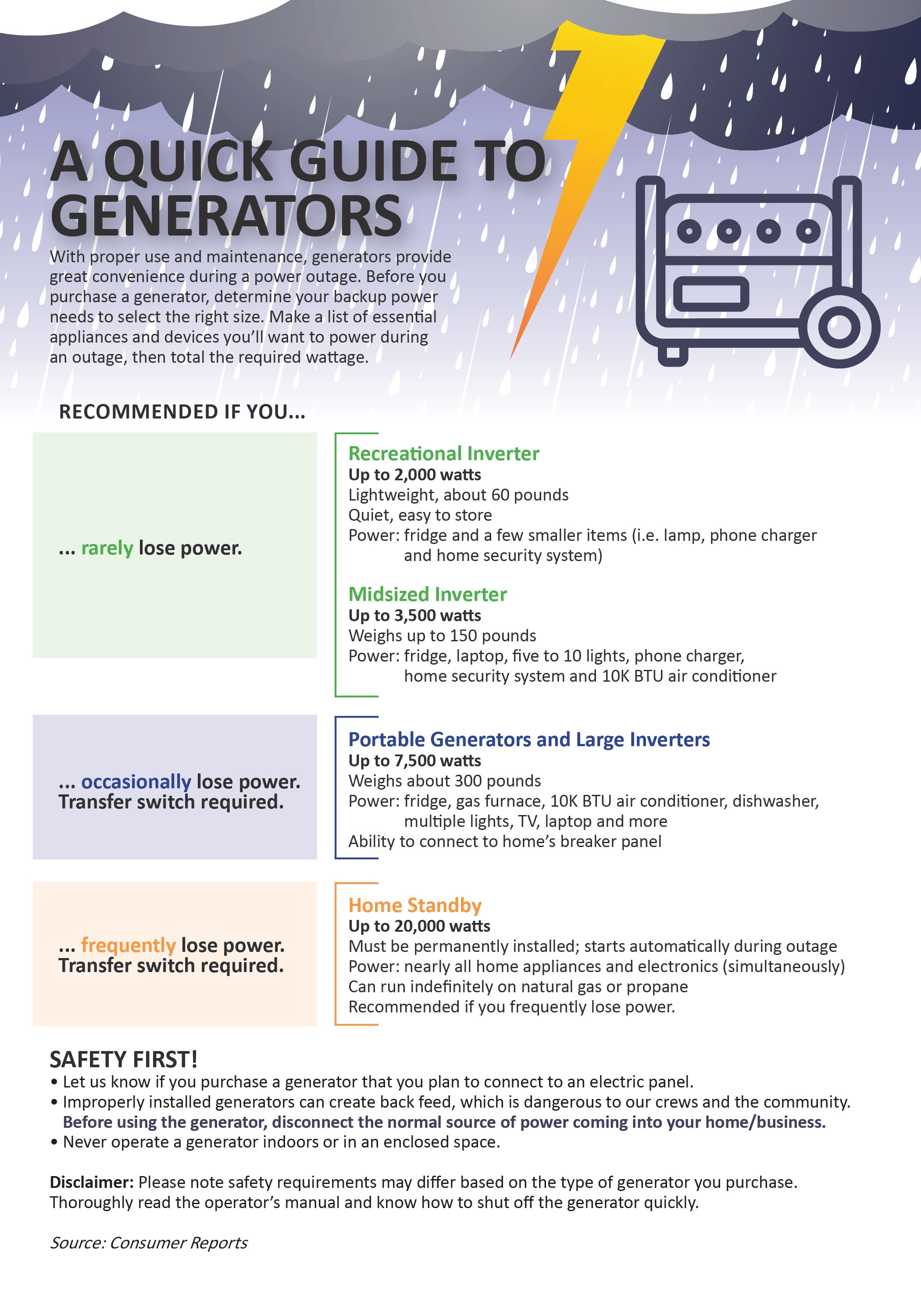Being Prepared For Severe Weather Looks Different For Everyone
Start by making power outages a thing of the past with a home standby generator, a one-time investment for a lifetime of security. There are several items to consider when looking at generators including fuel type, size and type of system.
You can't put a price on safety and security when you want to know that you and your family are protected in the event of an unexpected outage. With a standby generator your home will never lose power again. The generator will activate automatically in the event of any power loss and will restore power to your home within seconds.
How It Works:
- Your power goes out.
- Your generator detects the outage.
- The transfer switch activates the generator and electricity is provided to your home until service is restored by the utility.
Generator Safety Tips:
Never connect a standby generator into your home's electrical system. There are only two safe ways to connect a standby generator to your equipment.
Stationary Generator:
An approved generator transfer switch, which keeps your house circuits separate from the electric co-op, should be installed by a professional.
Portable Generator:
Plug appliances directly into the outlet provided on the generator.
Set up and run your generator in a well-ventilated area outside the home. Make sure it's out and away from your garage, doors, windows, and vents. The carbon monoxide generated is deadly.
Use a heavy-duty extension cord to connect electric appliances to the outlet on the generator.
Start the generator first before connecting appliances.

Click to enlarge.
For more information on how to operate your generator system safely let the Advise Guys help at 910.892.8071 or by e-mail at adviseguys@sremc.com.
For more information on generators and safety, visit this page.

